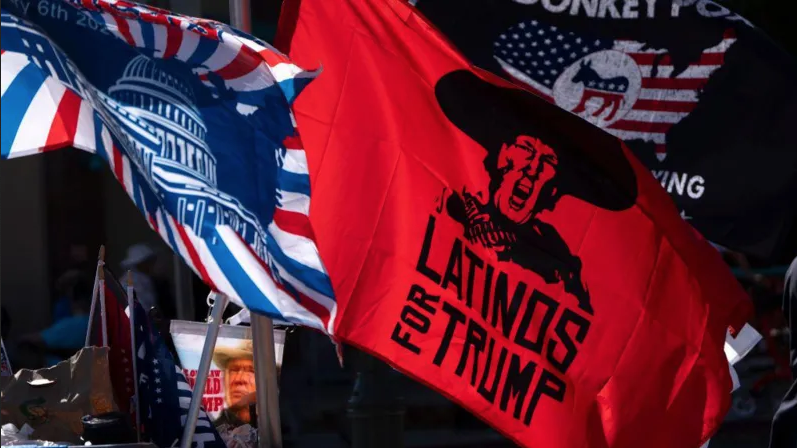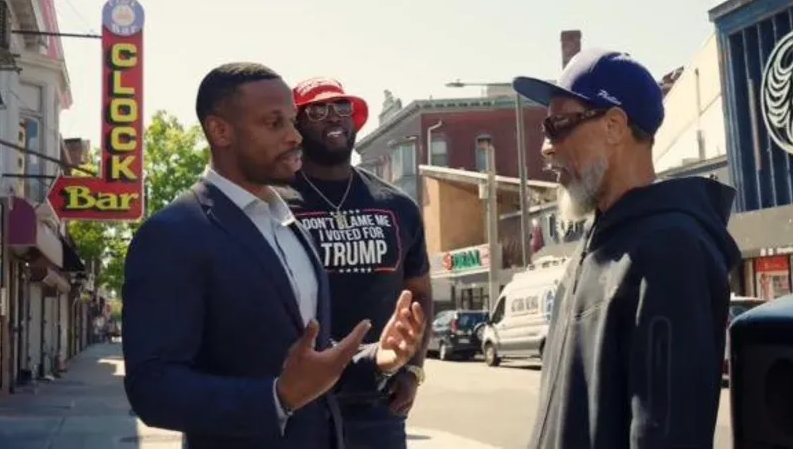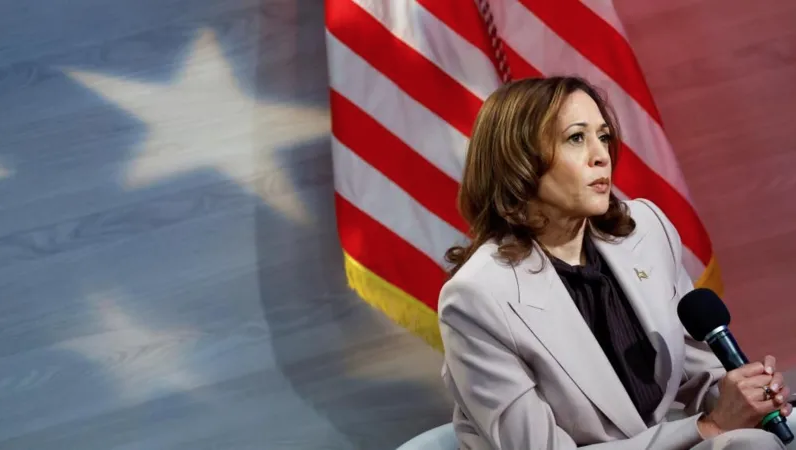With just weeks to go until the US presidential election, Kamala Harris is ramping up efforts to court black and Latino voters. Despite holding a clear lead among both groups, some Democrats have warned she needs to do more to energise these voters to turn out for her in November.
That’s in part due to recent polling which suggests Harris’s Republican rival Donald Trump is having success in winning over black and Latino voters, a continuation of gains he made in 2016 and 2020.
One New York Times and Siena poll indicated Harris had 78% support among black voters, compared to around 90% support for Democrats in recent elections, with men accounting for most of this drop-off.
This could prove crucial in a race that looks set to be decided by razor-thin margins. And even if this polling is off, in key battleground states modest gains among black or Latino voters could ultimately sway result.
In Arizona, for example, nearly one in four voters on 5 November is expected to be Latino, along with almost 20% in nearby Nevada. In another key state, Georgia, black voters constitute about 30% of the total. These are a significant amount of votes in seriously important states.
So what could be driving Trump’s apparent gains with these voters?
Economics take centre stage
The economy, particularly inflation and the cost of living, is the primary issue for a majority of voters.
This is the case for many black and Latino voters, with the New York Times suggesting a sizable majority of both groups are dissatisfied with the current state of the American economy.
Among them is Quenton Jordan, a 30-year-old Virginia resident who once voted for Barack Obama, but has voted for Trump since he first entered the national political stage in 2016.
“Inflation has pretty much made it impossible, or extremely challenging, for people to provide basic necessities for their families,” Mr Jordan said.
“It’s tangible things like that, that make people say [they] don’t like the pressure I’m getting from the cost of goods. It’s making it harder for me,” he added.
Across the country in notoriously “purple” Nevada, which has a large Latino population, Las Vegas resident Lydia Dominguez said that many Latinos “remember the economy under Trump”, adding that economic concerns means there’s “no longer a stigmatism” about supporting the former president.
“They can’t afford to live. That’s a really big part of it,” she told the BBC. “It’s no longer taboo to support him.”
Even some voters who are leaning towards Harris acknowledge that “pocketbook” issues have helped swing voters towards the right in their communities.
“There’s many people in my community who are switching. Lots of people will vote for Trump, on economics alone,” said Diego Arancivia, a former Republican voter in Nevada who is now voting for Harris.
“They’d never want to get a beer with him, but they think he has the tools to lift them up economically.”

Immigration and border issues
Echoing the broader US electorate, both black and Latino voters have expressed concern about immigration and the handling of the US-Mexico border by the Biden administration.
Strong border controls and a pledge to deport millions of undocumented migrants form a central part of the Trump campaign’s platform.
The campaign has also found a receptive audience among some black and Latino voters who say they perceive the border as having been chaotic and dangerous under the Biden administration and, by extension, under Harris.
Rolando Rodriguez, a Trump supporter and one-time Democrat from Texas, said the everyday realities of the record migrant crossings during recent years are weighing heavily on the minds of some voters, even if those numbers have fallen this year.
“I live so close to the border, and I have never before witnessed a disaster like the one we’ve seen under Kamala and Biden,” he said.
Similarly, Mr Jordan – the black voter in Virginia – said that he believes asylum seekers and other foreign nationals are “taking resources that the black community has been asking for for decades”.
This was something Trump addressed directly on Monday, referring to an “invasion” of undocumented migrants having a “huge negative impact” on black and Latino communities.

Social issues
Political science Professor Quadricos Driskel said black male voters in particular have turned away from what some see as a Democratic “embrace” of social agendas contrary to their own views.
“There’s this perception that there has been this assault on masculinity and what that means,” he said. “I think that’s what some black male voters are railing against.”
“It’s not necessarily the party itself,” he added. “It’s more the voters within the party and the verbiage around human sexuality and gender.”
Mr Driskell’s assessment was echoed by 49-year-old black South Carolina voter Clarence Pauling.
A barbershop owner and former police officer, Mr Pauling said the Republican Party’s views align more with his own religious values on gender and sexuality.
“You can’t go create your own agenda,” he said of the Democrats. “[If] you’re going to lead a whole country, you’re supposed to lead them the right way.”
On Monday, as Trump courted black and Latino voters at a town hall event in Pennsylvania, Harris ramped up her own efforts by releasing a list of policy proposals her campaign dubbed an “opportunity agenda for black men”.
She will also meet with black entrepreneurs this week in cities in key swing states, and speak with popular black media figures including radio host Charlamagne Tha God at an event in Detroit.
Trump, meanwhile, referenced the recent polling directly. “Our poll numbers have gone through the roof with black and Hispanic [voters], have gone through the roof,” he said. “And I like that.”
Stay informed with The Namibian – your source for credible journalism. Get in-depth reporting and opinions for
only N$85 a month. Invest in journalism, invest in democracy –
Subscribe Now!







